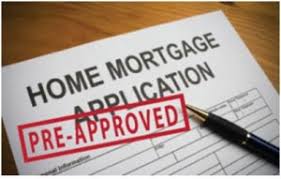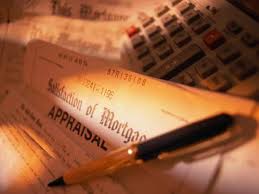
Apparently, as per the weather experts, March has a lot of snowfall and surprisingly so does April!
Hearing this on the radio gives you a wave of emotions: holy cow, oh great, I wonder how many vacation days I have left and when can I take down my Christmas lights.
Good news, those same weather experts are predicting a hot summer and you know what that means! Buy your fan(s) now before they run out and check out a pool, size and budget appropriate, for the backyard. So glad we have a compressor to blow that thing up every year; three rings take a lot of breath!
Normally by April you are thinking about moving because you need a bigger home, you need to down size, or its time to leave the basement of your family home.
Those weekends where you have little to do so you opt to go out, get a coffee and go to show homes and see how they decorate because the DIY on TV is all reruns. While you are there, you start to picture yourself living there and then begin to wonder, “can I do this?” Do I want to want to do all the landscaping, do I need a developed basement now or later, where are the schools? Maybe should I think about an already established community with lots of schools, trees, or place that my cat and I can live.
Working with your Dominion Lending Centres Mortgage Professional, we will review your options, your affordability, possible extra costs that you may have missed and finally, get you pre-approved!
Prequalified or rate hold, what is the difference?
Your broker has asked you for supporting documentation that will confirm your income, you do indeed have a down payment, and your debt is not more than you can handle along with possible new housing costs. This is so they can start the application to ensure the numbers are good and we can begin.
- Rate Hold – it is just that, a rate that lender is offering and, based on the application submitted to them, it shows the numbers are in alignment for them to hold a rate for you. This rate can be held anywhere from 90 – 120 days. Remember, they have reviewed the application submitted only and no other supporting documentation.
- Prequalified – it is just that, the lender has reviewed the supporting paperwork along with the application and is in happy to provide you with a prequalified letter stating they not only are they holding the rate for 90 – 120 days, depending on which lender, but you have met their criteria for lending.
o Although once you present you offer they may still have a few more items they want to check:
▪ You still working? – you will need a current paystub
▪ You still working at the same place?
▪ You didn’t buy a new car, right? Ugh!
▪ You didn’t get new furniture and finance it with the store, right? Ugh!
Ask your advisor about the DO’s and DON’Ts; this one single sheet of paper will make or break a deal!
Prequalified or rate hold, now you know the difference.
Contact me for your best mortgage options 705.669.7798 or trina@ndlc.ca
#trinamortgages #mortgages #ndlc #freedomofchoice
#bestmortgageforme #executive #firstimehomebuyer
If you found this information valuable, I only ask that you share with your friends and family.
Copyright DLC






